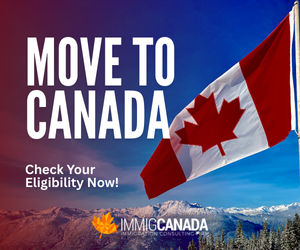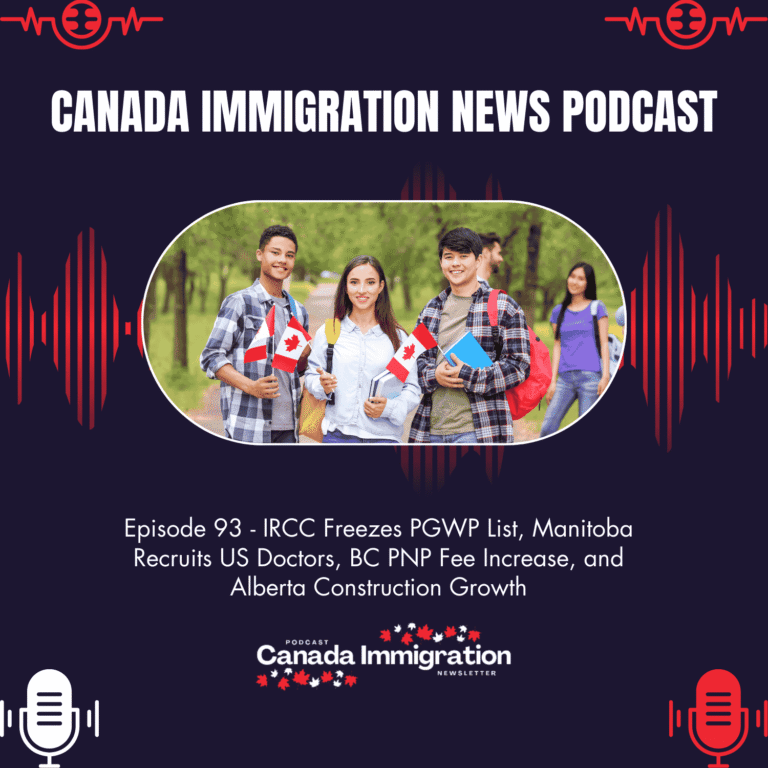Immigration Announcement
Canada’s Updated Family Members of Military Personnel Work Permit

Canada continues to support those who serve the country and their families. One of the ways it does this is through the family members of military personnel’s work permit, which gives spouses and eligible dependents the chance to work in Canada while their family member serves under the Visiting Forces Act.
This program remains an important pathway for families who want stability and opportunity during their stay in Canada. With updated rules, new eligibility requirements, and clear distinctions between reciprocal and non-reciprocal agreements, it is important for families to stay informed. This guide breaks everything down in a simple, friendly format so you know exactly how the program works in 2025.
Who Can Apply for the Family Members of Military Personnel Work Permit
Canada allows spouses and eligible dependents of foreign military members and designated civilians to apply for an open work permit. This is tied to the length of the military member’s tour of duty in Canada. There are two eligibility pathways. One falls under an existing reciprocal agreement between countries. The other applies to spouses of military members when no reciprocal agreement exists. The rules differ in each case, so knowing which one applies to you is important.
Eligibility When a Reciprocal Agreement Exists
When Canada and the country of the military member have a reciprocal agreement, family members may qualify under paragraph R205(b) using code C20.
To qualify, the applicant must be:
- A genuine spouse, common law partner or dependent child
The holder of an approval in principle issued by the Department of National Defence
Able to prove identity and confirm the family relationship
Able to show proof of the principal military member’s approved tour of duty in Canada
Under this pathway, work permits are issued without requiring a fee. They can match the duration of the military family member’s official stay, provided the applicant has a valid travel document.
Eligibility When No Reciprocal Agreement Exists
If there is no agreement between Canada and the foreign state, spouses may apply under R205(c)(ii) using administrative code C41.
Eligibility depends on the National Occupational Classification group of the principal military family member. Only certain categories qualify:
- Commissioned officers
Specialized members - Operations members
However, primary combat members in TEER 4 are excluded, and dependent children are no longer eligible if their work permit application was received on or after January 21, 2025. This pathway includes regular processing fees and biometric fees unless an exemption applies.
Required Documents for the Work Permit Application
To support the application, Canada expects clear documentation. These are typically required:
| Requirement | What You Must Provide |
| Identity | Passport or accepted travel document |
| Relationship proof | Marriage certificate, birth certificate or common law declaration |
| Eligibility proof | Approval letter from DND or proof of principal member’s role |
| Tour of duty | Confirmation of assignment in Canada |
| Medical exam | If required for open occupation |
Officers assess the documents carefully, especially since eligibility varies between the two pathways.
How Officers Make the Final Decision
If the documents confirm that the applicant meets the program requirements under the correct code, an open work permit is issued with conditions based on medical examinations and validity limits. If the eligibility criteria are not met, the officer must clearly document the reason. Canada requires transparent reasoning to ensure fairness and procedural clarity.
Why This Program Matters for Military Families
The family members of military personnel’s work permits help families stay together and thrive during international military assignments.
Canada’s approach ensures:
- Access to work opportunities
Stability during the tour of duty - A welcoming environment for families supporting military operations
- Pathways aligned with Canada’s labour laws and immigration rules
This program reflects Canada’s respect for international cooperation and its pro-newcomer values.
The family members of military personnel’s work permits remain an essential support for families who come to Canada under the Visiting Forces Act. Whether applying under a reciprocal agreement or through the C41 pathway, the program offers stability, employment opportunities and a strong sense of inclusion. Canada continues to stand out as a country that welcomes families who contribute to international defence partnerships, ensuring they feel supported throughout their stay.























